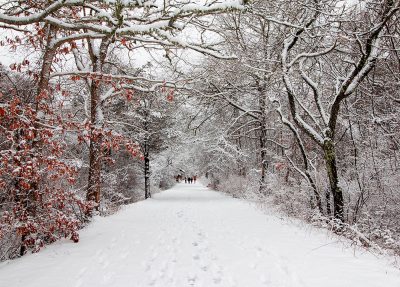Mayoral candidate Andrea Campbell discussed climate justice and the environment at a virtual town hall event Monday evening.

Around 70 climate experts, civic organizers and Boston residents joined Campbell on Zoom to ask questions about and provide input for Campbell’s climate plan.
In her opening remarks, Campbell cited winter storms in Texas, California wildfires and local pollution as examples of how the burden of extreme weather events as a result of climate change are most shouldered by low-income communities and communities of color.
“It is clear that we need a response to [the] climate crisis that is both urgent and equitable,” Campbell said. “We know that the climate crisis of course is a public health crisis, and that the investments we need to make in resiliency and sustainability are opportunities to improve health and the economic well-being of our residents.”
The town hall was hosted in partnership with the Rev. Vernon Walker, an executive board member of Massachusetts Sierra Club, who said the goal of the meeting was to air concerns and discuss community solutions to the climate crisis in Boston.
“I am glad to be in conversation with Councilor Campbell, and ultimately with you all,” Walker said. “I think we will learn a lot as we are on this journey together.”
Campbell began the town hall by laying out the working tenets of her environmental justice plan, which she plans to release later this week.
Major points included focusing environmental justice efforts within communities of color, building pathways to clean energy jobs, investing in and sustaining green infrastructure or development and improving air quality through transit changes.
“To address the climate crisis, we need to bring residents together, across every single neighborhood, every demographic, to collaboratively work together,” Campbell said, “so that Boston truly is a resilient, healthy, economically thriving safe city for all of our residents, regardless of their ZIP code or economic status.”
Accessibility and equity for lower-income communities and communities of color framed the conversation, with questions and concerns from residents about integrating intersectionality to the City’s strategy. Campbell offered possible solutions such as environmental tracking metrics and updating outdated maps used to create climate plans.
One of Campbell’s top priorities around environmental justice is to prioritize communities of color in the initial plans, according to a spokesperson from the campaign.
A few participants brought up the need for sustainable development. One resident specifically asked about retrofitting existing buildings to be more energy efficient.
“[Retrofitting] would be like the gold standard,” said Sara Driscoll of the Boston Climate Action Network. “These old buildings are not going away, and they are old, like hundreds of years old. And we’re not going to be stripping down and tearing down all these buildings, so we need to retrofit.”
However, old infrastructure impedes the City’s sustainable building plans, especially in low- income areas, said Ava Gallo, a research fellow at Climate XChange.
“There are a lot of communities of color and low-income communities that are really wanting to reap the benefits of retrofitting,” Gallo said, “but the housing is so old and kind of not taken care of that there’s so much to be done before they can even get to the place to be retrofitted.”
Clean housing in Boston was another major topic of discussion among residents, who discussed low accountability for landlords and housing corporations to meet green standards and confusing information for small property owners.
“We’re way behind the curve,” Leslie Belay of Suffolk County said. “The science is all there. The technology is all here, but the taxes and the incentives are completely backwards.”
Resident Rick Yoder said he believes most people don’t view climate change as a “terrifying” crisis, so they’re not taking action.
Town hall participants pressed Campbell to strengthen enforcement through building codes and new legislation.
Campbell said regulations need to be “strong” — whether they come as mandates, creative programming or new investments.
In her closing remarks, Campbell repeated that climate justice is an issue best addressed by the community as a whole.
“The power is with us,” Campbell said as the event came to a close. “I do think this is the issue that can bring communities together, and I’m really excited about the possibilities of doing that in the city of Boston.”






















































































































